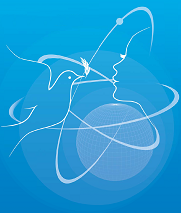Speaker
Keiko Hanamitsu
(Webster University, Austria)
Description
Knowledge is a strategic asset in every business. It should be actively managed by creating, acquiring, sharing, transferring and retaining among workers. Leaders and managers have to understand the significance of knowledge management (KM), recognize the risks of knowledge loss and gaps, and its impact on their working environment.
Nuclear industry appears to be behind other industries in KM. This is firstly attributed to the nature of business which deals with sensitive data on nuclear materials and prioritizes safety and security over information sharing. Second, it faces strong competition over the operational life-cycle, which discourages to exchange know-how and experiences. Third, nuclear industry is highly technology-oriented with homogeneous form, which misleads people to believe that KM has been already in place. Those factors could be barriers to establish nuclear KM culture on the basis of corporate core value and safety culture.
Practical example of KM in business includes codification of particular skills into knowledge repository such as manual, handbook and database, and implicit knowledge transfer from experts to successors through apprenticeship and mentoring programs. The examples suggest that KM applications closely link to information technology (IT) and human resource development (HRD) strategies, which results in effective integration of all available resources: people, process, and technology.
Globalization and diversity is another dimension where KM can contribute to the solution. Global companies have to achieve a common goal beyond cultural, racial and gender differences. KM helps reduce the gaps, identify the core competence, and increase flexibility in workplace.
Workingwomen have been developing their professional career while adapting to situational changes in their lives. It might be easier for them to understand the importance of KM and develop KM practices in the organizations. KM will help nuclear industry to respond to the changing environment from homogeneous culture to diversity.
| Country or International Organization | Japan |
|---|
Primary author
Keiko Hanamitsu
(Webster University, Austria)

